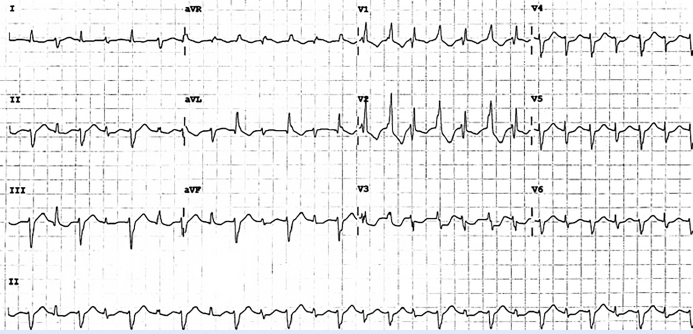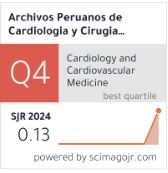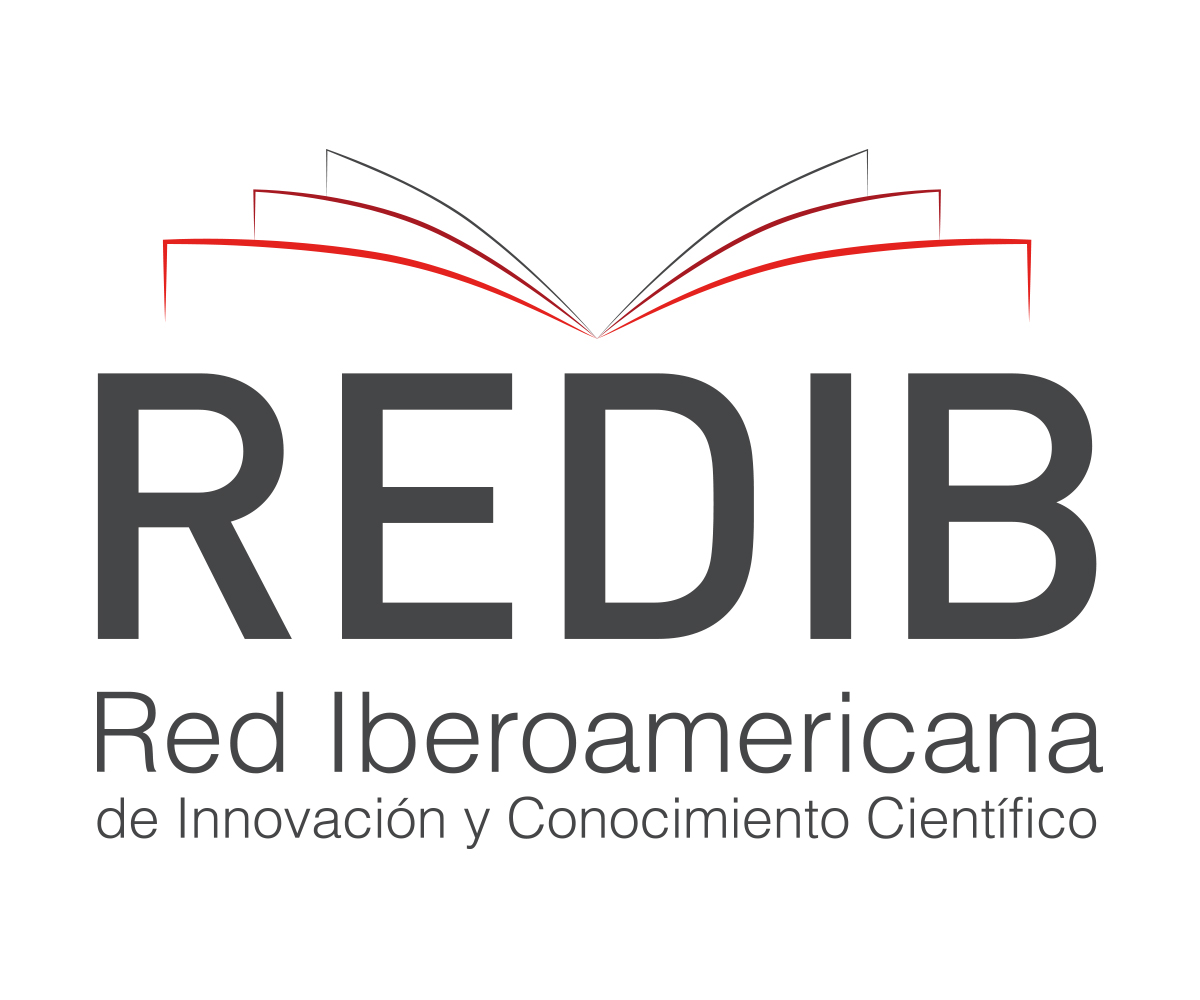Bidirectional ventricular tachycardia due to digoxin-diuretic interaction in post-cardiac surgery patient: a case report
DOI:
https://doi.org/10.47487/apcyccv.v5i2.362Palabras clave:
Tachycardia, Ventricular, Digoxin, Diuretics, Arrhythmias, Cardiac, Thoracic SurgeryResumen
Bidirectional ventricular tachycardia (BVT) is a rare form of malignant ventricular arrhythmia characterized by beat-to-beat alternation in the QRS axis. BVT is a hallmark of digitalis toxicity, but digoxin-induced BVT secondary to digoxin-diuretic interaction in cardiac surgery patients is not widely reported. We present the case of a 62-year-old woman undergoing mitral valve replacement with tricuspid annuloplasty who developed postoperative congestive heart failure and vasoplegic syndrome requiring norepinephrine, vasopressin, and loop diuretics. During postoperative care, she presented atrial fibrillation with rapid ventricular response, achieving rate control with digoxin, but later displayed hemodynamically stable BVT associated with digitalis toxicity. The case highlights the importance of physicians monitoring digoxin toxicity when prescribing digoxin to patients with a diuretic regimen, particularly loop diuretics. During digoxin-induced-BVT, supportive treatment, including discontinuing digitalis coupled with potassium and magnesium supplements, can be considered as long as digoxin-specific antibodies are unavailable, and the patient is hemodynamically stable.
Descargas
Referencias
Kulahcioglu S, Baysal PK, Kup A, Imanov E, Uslu A, Demir S, et al. Bidirectional ventricular tachycardia induced by respiratory alkalosis mediated hypokalemia in a patient with acute ischemic heart failure. Pacing Clin Electrophysiol. 2021;44(12):2115-2118. doi: 10.1111/pace.14337.
Xie Y, Han J, Liu J, Hao J, Zu X, Hao Y. A case of hypokalemia-induced bidirectional ventricular tachycardia. J Int Med Res. 2020;48(11):300060520971440. doi: 10.1177/0300060520971440.
Wang MT, Su CY, Chan AL, Lian PW, Leu HB, Hsu YJ. Risk of digoxin intoxication in heart failure patients exposed to digoxin-diuretic interactions: a population-based study. Br J Clin Pharmacol. 2010;70(2):258-67. doi: 10.1111/j.1365-2125.2010.03687.x.
Quina-Rodrigues C, Alves J, Matta-Coelho C. Bidirectional ventricular tachycardia in ACTH-producing pheochromocytoma. Europace. 2019;21(9):1285. doi: 10.1093/europace/euz043.
Sonmez O, Gul EE, Duman C, Düzenli MA, Tokaç M, Cooper J. Type II bidirectional ventricular tachycardia in a patient with myocardial infarction. J Electrocardiol. 2009;42(6):631-2. doi: 10.1016/j.jelectrocard.2009.06.011.
Bhavnani SP, Clyne CA. Bidirectional ventricular tachycardia due to coronary allograft vasculopathy a unique presentation. Ann Noninvasive Electrocardiol. 2012;17(4):405-8. doi: 10.1111/j.1542-474X.2012.00520.x.
Kjeldsen K, Nørgaard A, Gheorghiade M. Myocardial Na, K-ATPase: the molecular basis for the hemodynamic effect of digoxin therapy in congestive heart failure. Cardiovasc Res. 2002;55(4):710-3. doi: 10.1016/s0008-6363(02)00466-2.
Rose MR, Glassman E, Spencer FC. Arrhythmias following cardiac surgery: relation to serum digoxin levels. Am Heart J. 1975;89(3):288-94. doi: 10.1016/0002-8703(75)90077-0.
Toya N, Isokawa S, Suzuki A, Otani N, Ishimatsu S. Bidirectional ventricular tachycardia induced by caffeine poisoning. Am J Emerg Med. 2019;37(11):2118.e1-2118.e3. doi: 10.1016/j.ajem.2018.05.054.
Alvarado-Alvarado JA, Salas-Villela RA, Reyes-Guerrero JA, Ezquerra-Osorio A. Phenytoin as treatment for bidirectional ventricular tachycardia in a patient with anterior myocardial infarction and digoxin toxicity. Arch Cardiol Mex. 2022;92(4):550-552. doi: 10.24875/ACM.21000262.

Descargas
Publicado
Número
Sección
Licencia
Derechos de autor 2024 La revista es titular de la primera publicación, luego el autor dando crédito a la primera publicación.

Esta obra está bajo una licencia internacional Creative Commons Atribución 4.0.

















